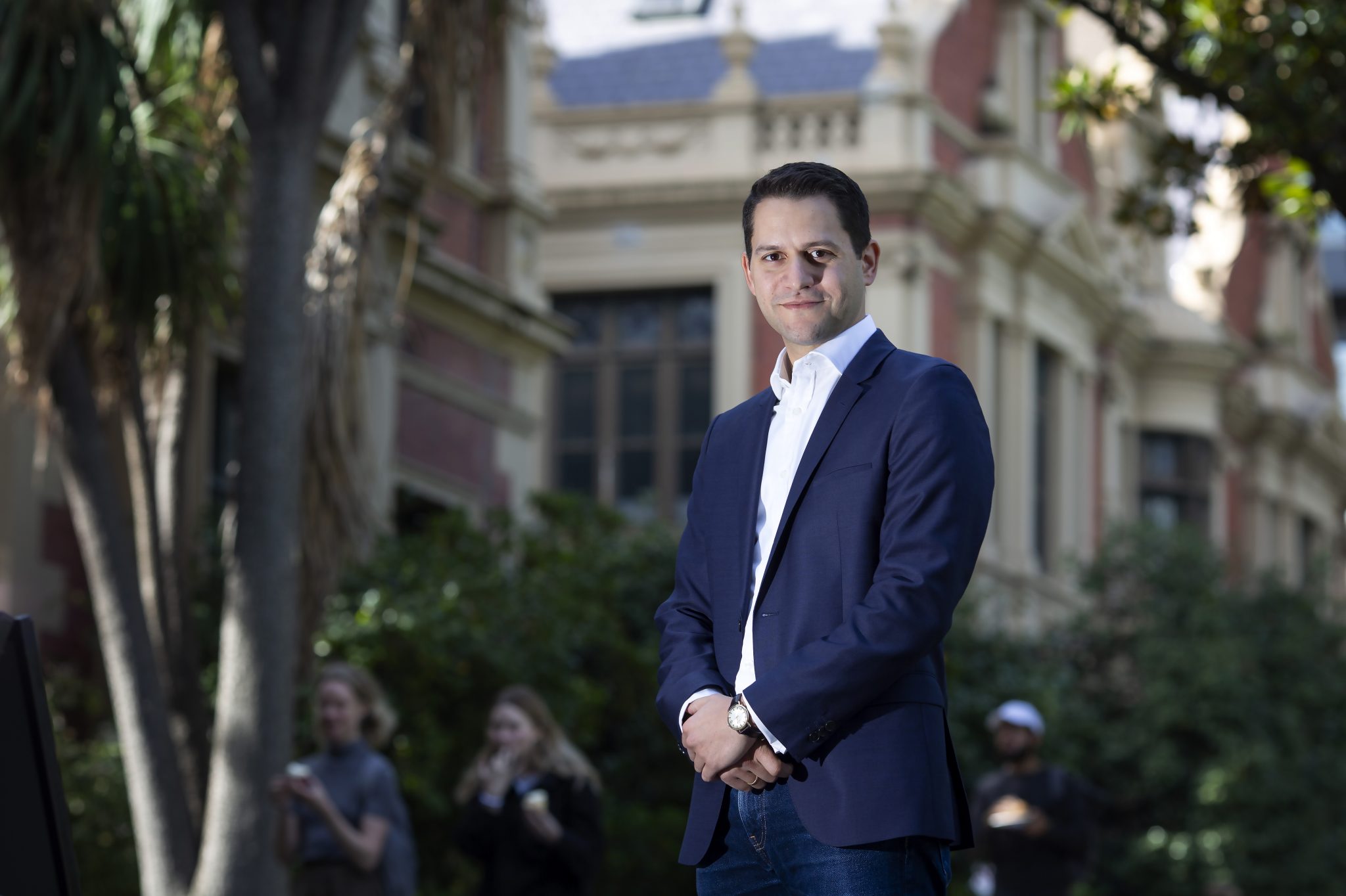
Story from Australian Genomics Research Highlights
July 2019.
Genomic testing can improve the lives of people with genetic conditions – and the lives of those close to them.
When health economist Ilias Goranitis was asked to analyse the cost effectiveness of genomics, he understood that it would mean creating a whole new research playbook. Much like the area of medicine he was examining, this could be pioneering work. The challenge was complex, but irresistible.
His findings will be used to inform decision-makers on whether genomics should be funded by the Federal Government for the diagnosis and management of rare genetic conditions.
But they will also probably have a wider impact.
An important element of the research is in understanding the benefits of genomic testing for families as well as for patients. This is a significant departure from the way economic evaluations have typically been conducted.
Dr Goranitis is a Professorial Fellow with Australian Genomics and a Senior Health Economist at the University of Melbourne’s Centre for Health Policy.
Traditionally, health economists have tried to evaluate the impact of interventions on patient health outcomes alone,” he says.
That level of analysis is challenged in genomic testing because there is value in a diagnosis regardless of whether or not it results in the improvement of a patient’s health. It can, for example, inform reproductive choices and family planning, reduce anxiety and end the costly diagnostic odyssey.
We had to adjust our conventional methods of outcome measurement to capture this broad range of benefits – not only for the patient but also for the family,” he says.
For a start, consider the impact that a child with a rare genetic condition will have on their parents.
We have initiated a study to measure how the quality of life of a child impacts on the quality of life of the parents and how that compares to the quality of life of other parents in the general population who do not have a child with a genetic condition,” explains Dr Goranitis.
Preliminary data gathered so far suggests the impact is significant, affecting not just the parents’ working lives but also their psychological and physical health. The yield from this work is important because it will allow the researchers to quantify the benefits that genomics can provide to parents through diagnosis, prognosis and improved clinical management.
The benefits of genomic testing are a key aspect of the research. While it may be expensive to conduct, testing might well reduce diagnostic costs or overall treatment by avoiding unnecessary investigations or ineffective treatments.
We will also be looking at how that intervention impacts on healthcare resources after the test, Dr Goranitis adds. That is also important.”
Three choice experiments were launched following a series of focus groups that discussed the value of genomic testing and involved clinicians, community representatives or advocates with lived experience of genetic conditions, and genetic counsellors.
There is a wide range of benefits to genomic testing and we need to understand what matters to people in these different contexts, says Dr Goranitis. We can then construct surveys that ask people to weigh up different characteristics of genomic testing through a series of choice options.
By the choices people make, we can understand the value they place on the different characteristics of genomic testing and the test itself.”
The research is not limited to parents of children with genetic disorders. The views of 1000 Australians have been sought as part of the research in an effort to understand society’s views on the factors that determine the uptake of genomic testing and the value placed on health benefits observed in adults and children with rare genetic diseases relative to patients with non-genetic diseases. The research will provide important insights into how society values genomic testing and prioritises genetic conditions.
Dr Goranitis expects to begin analysing the data in coming weeks and plans to present some of his findings at this year’s aptly named ‘New Heights in Health Economics’ conference hosted by the International Health Economics Association in Switzerland.
This story is taken from Australian Genomics’ magazine of research highlights “Our story is your story too.”
Head over to our the digital edition to read more about how our clinical flagships and program areas are transforming the way we think about and approach the integration of genomics into mainstream healthcare.
Each story showcases the collaborative and wide-reaching impact of our work.
We hope you enjoy the remarkable stories of Australian Genomics.
Tips for viewing:
The digital magazine is an interactive and searchable copy of the printed edition. The digital edition is fully responsive on mobile, tablet and desktop. Click on dynamic view to adjust font size for reading, and to access read out aloud and translation features.
Acknowledgements:
Editor: Dorothy Illing
Designer: Bill Farr / Mediaxpress
Production: Mediaxpress
Writers: Anders Furze, Erin Munro, Muriel Reddy, Kate Stanton
Photographers: James Elsby, Patrick Hamilton, Steve McKenzie, Rick Stevens, Andrew Tauber
Digital upload: Smedia

